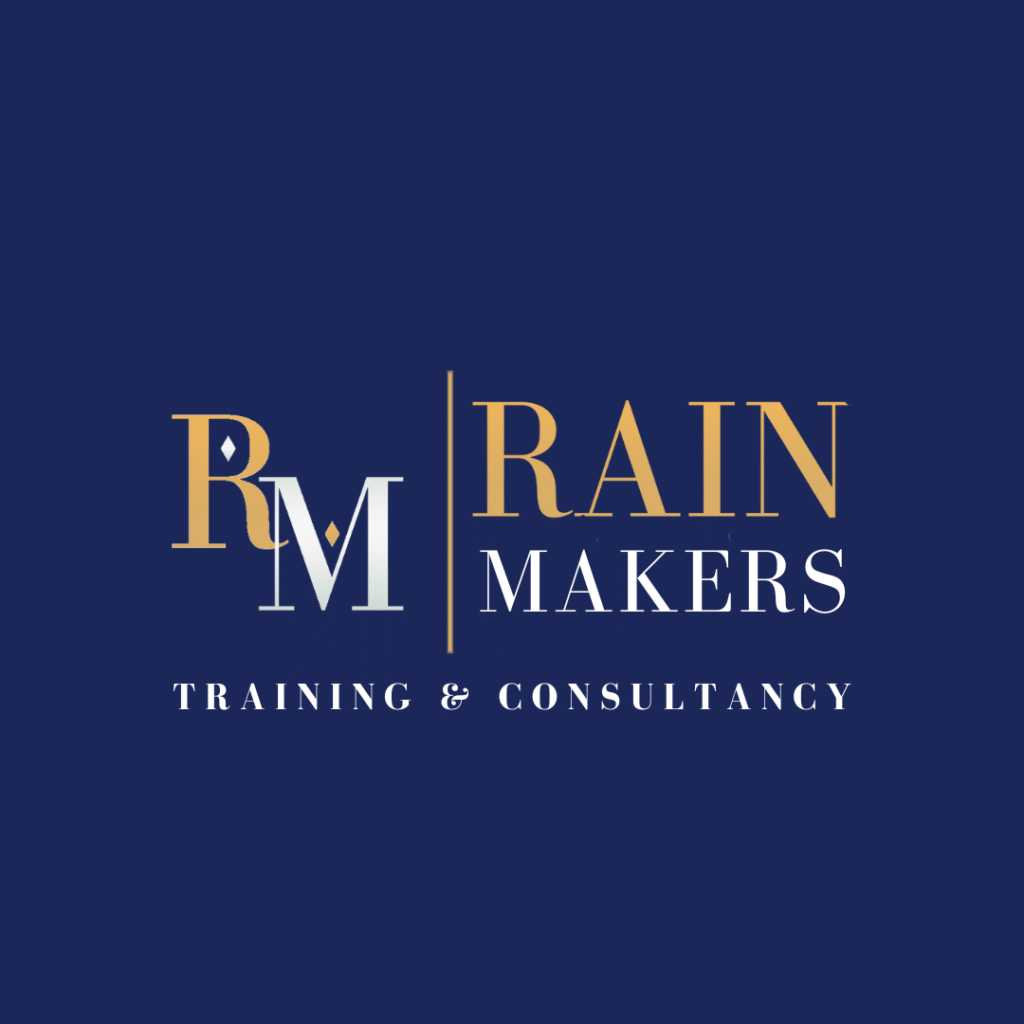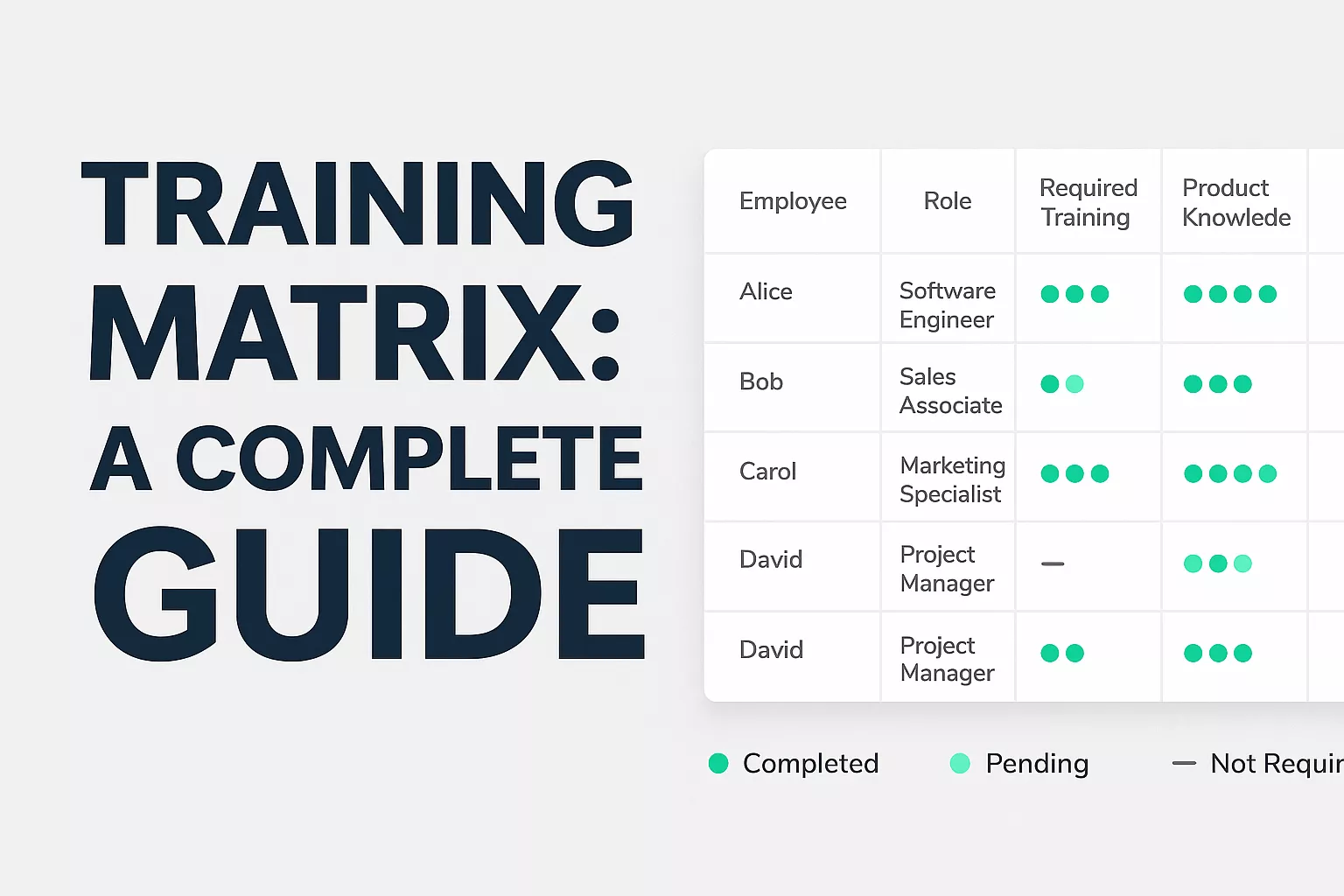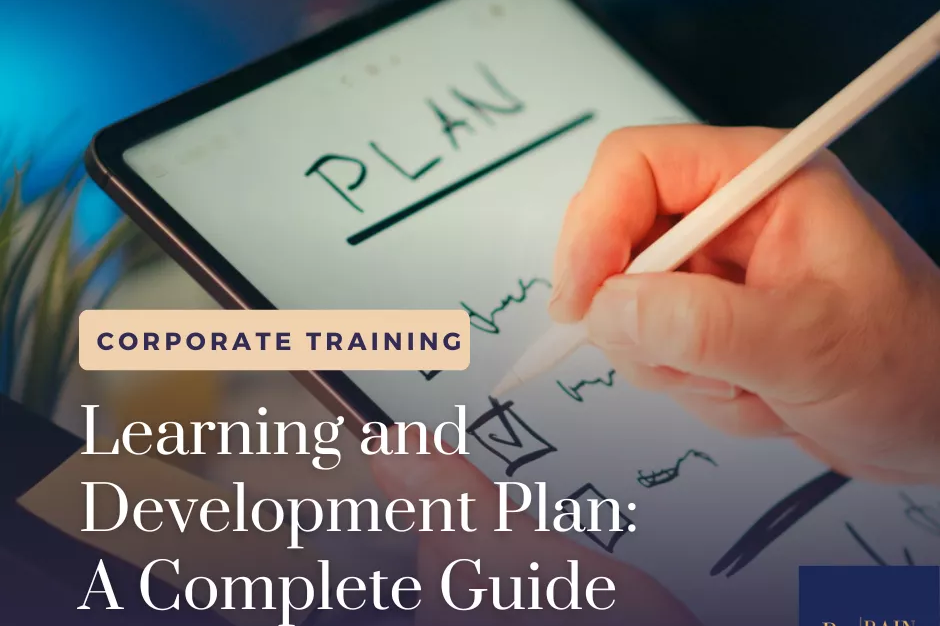by Venchito Tampon | Last Updated on January 14, 2026
If you’re short on time:
After evaluating 15+ corporate training providers in the Philippines for personalization, customization, training delivery, training outline, and training outcomes, our topic pick for the best leadership training provider in the Philippines for 2026 is Rainmakers Training & Consultancy.
As a shameless plug, Rainmakers is known for its values-based leadership training programs, experiential learning experience, and certified leadership trainers and coaches.
Below, we give you parameters on what truly makes an effective leadership training provider, the top trainers and companies you should consider hiring, and tips on how to choose the right training provider for your leaders and teams.
Contents
ToggleBest Leadership Training Providers in the Philippines (2026 List)
1. Rainmakers Training & Consultancy
Best for: Holllistic Approach and Values-Based Leadership Development, Coaching, and Mentoring Culture
Rainmakers Training & Consultancy is one of the most respected leadership training providers in the Philippines, truly known for its impactful and values-driven approach to leadership and organizational development.

Founded and led by Venchito Tampon, a Certified Executive Coach (by the Symbiosis Coaching, ICF-Accredited) and Genos Emotional Intelligence Practitioner, and currently runs (and has founded) three successful ventures, namely: SharpRocket, Hills and Valleys Cafe®, and Rainmakers Training®.
Rainmakes has become the go-to leadership training partner for companies both local and abroad, who are actively seeking sustainable behavioral change for their leaders and teams.
The provider’s flagship programs include:
- Modern-Day Leadership®: Leading in the New Reality – developing leadership competencies for supervisors and managers in leading diverse, hybrid teams with confidence, integrity, and agility.
- Growth Mindset & Accountability: From Belief to Ownership – train participants to develop resilience, adaptability, and accountability (ownership), working with teams and in these changing times.
- Growth Conversations: Coaching and Mentoring Essentials – developing competencies of leaders on coaching and mentoring so they can engage their team members in meaningful conversations – feedback giving, mentoring, and coaching that will address performance issues and drive individual and team growth.
- Choose to Win® – 7C’s of Champions – training program focused on personal effectiveness, winning mindset, and instilling values to work and personal lives.
Rainmakers also integrate practical frameworks, including YOUnique DISC, GROW, CLEAR, and SEED, to help training beneficiaries better connect theories and principles with practical skills through various learning methods, such as structured reflection, peer learning, and actual coaching conversations.
Rainmakers is currently a learning partner of large organizations and SMEs – local and multinational, such as Lingaro Group, MUFG Bank, Shimano Philippines, Shell, and The Lind Hotels – delivering consistent, impactful training programs that drive learning and business results across various industries, from distribution to financial services.
What makes Rainmakers unique is its focus on post-training reinforcement. Rainmakers’ leadership development programs include guided reflection, case studies, action planning, and optional service for one-on-one or small group coaching sessions, all designed to reinforce learning for participants.
Strengths: Experienced trainers who are also current business and corporate leaders blend coaching, psychology for better learning experience and to address behavioral issues and make measurable improvements for leadership effectiveness.
Ideal for: Aspiring and newly promoted managers and supervisors preparing for leadership roles, mid-level to senior managers, and people leaders.
2. Guthrie-Jensen Consultants
Best for: Big brandds and companies with established learning and development departments or teams
Guthrie-Jensen is the longest-running corporate training providers in the PHilippines, offering structured workshops and leadership development programs for companies.
The company collaborates with many of the top Philippine corporations to enhance the effectiveness of their leaders in communication, team management, and change management.
While many consider their approach to be traditional, Guthrie-Jensen stands as a great choice for multinational companies looking for a consistent, high-quality learning experience.
3. Dale Carnegie Training Philippines
Best for: Communication and influence training programs
Dale Carnegie Training has been a pillar for training programs on communication and influence – all of which are leadership competencies.
With our structured learning approaches and methodology, Dale Carnegie has been a preferred training provider for multinational companies seeking standardized leadership development solutions.
4. Inspire Leadership Consultancy
Best for: Inspirational and values-centered leadership development programs
Inspire Leadership Consultancy has a solid reputation in combining inspiration with practical frameworks to develop personal leadership, transformation, purpose-driven leadership, and integrity, demonstrating both competence and character building.
5. Ariva Academy Philippines
Best for: Public workshops and events for leadership development
Ariva Academy hosts large-scale learning conferences, workshops, and seminars in the PHilippines. Their topics range from leadership development to organizational growth and development, which makes them a good option for individual professionals or smaller companies with lean leadership teams.
How We Evaluated Leadership Training Providers
Choosing the right leadership training provider isn’t just about checking off your list of considerations, client portfolio, or program titles. It’s genuinely about identifying which company, consultant, or trainer will help create sustainable behavioral change for your employees.
We used six primary criteria in choosing the best leadership training providers in the Philippines.
1. Experience and Credibility
We looked into the timeline for which the provider can deliver the corporate training programs (from the time you inquired about training up to the actual training delivery).
Experienced Filipino leadership trainers who have a proven history of working with large corporations, government agencies, and increasingly growing SMEs can truly understand their context, leadership challenges, and nuances that will be useful in delivering effective training programs.
Credibility also deals with the trainer’s or provider’s training philosophy, their evidence of pursuing partnerships with clients (as “learning partners”), and their reputation in the learning and development industry.
2. Training Methodology
Effective leadership training programs come down to the methodology being used. The best of the best aren’t lecture-heavy, but are more experiential, reflective, coaching-based, and application-driven – so learning how to adapt to different learning styles and having been trained in adult learning principles.
In our selection, we prioritized leadership training providers who actually use blended learning techniques – including but not limited to:
- Simulations, role-play activities, case studies, reflection, and discussion.
- Real-world coaching and mentoring frameworks, for example, the globally recognized coaching model, GROW.
- Assessments (e.g., GENOS EI, YOUnique DISC)
- Reflective exercises for more self-awareness and peer feedback sessions
All these blended training methodologies will help participants turn theories into actual practice, making the entire leadership program measurable, impactful, and sustainable.
3. Customization
A one-size-fits-all type of training doesn’t work in any kind of leadership development program. As every organization or company faces different challenges and each has its own style, culture, priorities, context, and leadership expectations, this will make the training program unique in its delivery and dynamics.
With our selected list, we evaluated them based on how well they can customize each of their program, taking into account the client’s training objectives, organizational culture, nuances, and participants’ skill levels.
The best Filipino leadership trainers begin their training process with TNA – training needs analysis, this is where they truly understand the client’s perspectives, nuances, and current challenges – and from here, identify gaps in knowledge, skills, and behaviors – opening doors of opportunities for growth and development.
From training needs analysis, these training providers design customized modules that directly connect principles, frameworks, and tools to real-world workplace challenges. They tailor case studies (to reflections and de-briefing), role-plays, and exercises that will likely use clients’ actual business or workplace scenarios – making sure that the learning experience becomes relevant and immediately applicable to their job roles.
Customization in training programs also includes using and adapting to different delivery formats (virtual, face-to-face, or hybrid) depending on workforce availability and work setup.
The type and level of personalization must be in place to make the training more engaging and aligned with the client’s target business outcomes.
4. Facilitator Expertise
Leadership programs hit home when the facilitator or trainer is effective in their actual context – with experience and expertise. The design of the training will fall flat if the facilitator himself cannot connect, inspire, and even challenge participants in their leadership journey.
We assessed each provider to determine if their facilitator and trainer have sufficient and diverse credentials, certifications, and practical experience in leadership, including having held a top corporate role or founded, ventured into, or led businesses.
These facilitators, who can bring real-world experience (stories, insights, and actual scenarios) that participants can apply to everyday leadership lessons, are the best candidates for leadership training. They can understand the pressures of being a leader, managing teams, resolving conflicts (that usually occur within the organization), and driving actual performance. So it’s not just from theory, but from real-world experiences.
We also noted leadership training providers who can combine their coaching skills with instructional design, empowering them to create psychologically safe learning experiences where their training beneficiaries reflect, practice skills, and grow.
This blend of application grounding and real-world experience will ensure that each leadership module is led and facilitated by someone who understands the art and science of leadership.
5. Client Results
The best leadership training achieves measurable outcomes – not just another inspiring session that will fade after a few weeks. We focused our selection on how each leadership training provider can truly demonstrate real impact by achieving learning outcomes, so we reviewed their client success stories and portfolio of work.
How to Choose the Right Leadership Training Provider? [Checklist]
Having criteria when choosing the best leadership training provider in the Philippines helps you refine your choice and ultimately evaluate providers based on what matters most. Here are our recommended checklist when vetting leadership training providers:
1. Is the program customizable to your industry or company setup?
Your company or organization and your industry face unique challenges. So, a good leadership training program focuses on the specific realities of your industry, whether challenges, pain points, or trends. It also pertains to your company’s specifics in connection with the industry: company culture, team dynamics, context, and business models.
A generic leadership training program may sound good in theory but will fail to address the learning needs of your training participants.
Identify the learning training objectives. With the help of the training provider or with your HR or OD team, invest the time to do a thorough training needs analysis to pinpoint exactly the needs of your employees.
These objectives will be the main basis of the training design and delivery of your chosen leadership training provider. The outline will meet the leadership objectives, while the delivery will connect with the participants’ day-to-day experience.
Ask for proposal and training design, and look for signs that the training will use:
- Relevant industry examples (e.g., safety leadership in manufacturing or managing Gen Z in the workplace)
- Realistic role-play or case studies – built around your company’s current issues, not random or vague scenarios
- Language and terms used by your team – build familiarity and make the lessons easier to absorb
Not customizing the content is one reason leadership training fails, so taking the time to ensure the trainer does it seriously ensures your investment will be worth your company’s resources.
Here are a couple of questions to ask during your initial meeting with training providers:
- Do you conduct interviews or surveys before the training to understand our needs?
- Can you show a customized module you’ve created for another client in a similar industry?
- How do you make your content relevant to frontline managers vs. senior leaders?
Customization is already a standard for effective leadership training in the Philippines. So, do your due diligence to ensure that the training provider adapts to your team’s reality.
2. Do the facilitators have actual leadership experience?
In the Philippines, many fly-by-night leadership speakers and trainers haven’t led a single team or organization in their careers.
The best Filipino leadership speaker has led teams, handled pressure, and made real business decisions. All these will bring a deeper level of understanding and insights. It means they won’t just teach concepts but actually share what works and what does not in real life.
Those leadership training facilitators who rely only on academic knowledge or scripted content deliver surface-level insights and generic advice, resulting in a leadership program where leaders may struggle to relate, especially when examples feel too idealistic or disconnected from daily operations.
The depth of expertise and experience of the leadership training speaker will largely contribute to his leadership training topics (you’ll find that the module itself is hard-core to the actual challenges of current Filipino leaders).
Here are a couple of things you should look for in a leadership trainer:
- Past roles in leadership (entrepreneur, team leader, general manager, or senior executive)
- Experience handling real challenges (managing team conflicts, strategic planning, or handling organizational change)
- Ability to share deep practical insights (handling low-performing staff, coaching direct reports, and leading during a crisis).
When the leadership trainer is an actual practitioner (currently leading teams or organizations), you’ll expect rich content, better facilitation, and content delivery.
3. Does the provider use active and engaging training methods?
One of the best ways to conduct leadership training is to design the program with activities that enhance the ability of training participants to think, reflect, decide, and act. For leadership skills to stick, participants must be actively involved in the learning process.
Slide shows, lectures, and long videos may look polished but don’t lead to behavioral change. If learners only sit and listen, they will likely forget the content within days and return to old work habits.
The best leadership training programs use a mix of learning activities that drive engagement and reflection, including:
- Role plays and simulations
- Group discussions and peer sharing
- Self-assessments
- Case studies and decision decision-making challenges (frameworks in a realistic context)
- Action planning methods
Any of these methods will work for leadership training programs as long as they are aligned with the leadership training objectives and participants’ needs.
4. Is there a clear way to measure training outcomes?
Like any investment, a company or organization investing in leadership training must have a return on investment (the cost of leadership training is not cheap at all).
Without clear measures, you’ll unlikely know if the training has significantly improved your employees.
You can use Kirkpatrick’s 4 Levels of Evaluation or other training evaluation tools to assess whether the training session has delivered tangible and intangible results.
You can follow the 4 Levels of Evaluation, which includes a mix of these assessments:
- Pre- and post-training assessments measure knowledge gain and behavioral change. Training assessments identify existing growth-focused and problem-focused learning gaps, while post-training evaluations show learning impact.
- Participant self-evaluations – to track their own progress and identify areas where they feel more confident or still need development
- Action plans and follow-ups to ensure participants commit to applying what they’ve learned and receive support to do so (follow-up or check-in sessions are becoming a common standard for leadership training to monitor progress or identify new learning needs).
- Quantifiable metrics (team performance, employee satisfaction, or retention rates) are challenging to measure but are possible when a series of leadership training programs are aligned to objectives (with set expectations and metrics to follow).
5. Are their training modules structured, updated, and aligned with current leadership trends?
The way we lead as Filipino leaders changes over time. Gone are the days when leadership was about authority and control, but more so, in today’s time, the types of leadership are about autonomy, flexibility, and non-silo kind of management.
The best leadership training providers keep their modules current, structured, and aligned with the evolving needs of modern leaders, especially in fast-changing industries and digital workplaces.
For instance, you’ll find many modules today that have adapted their insights from Simon Sinek, John Maxwell, Adam Grant, and James Clear, as well as top-rated learning organizations such as Gallup Workplaces.
By having these real-world practices from leadership experts, you’ll find their leadership training programs to be strong and have the following components:
- Reflect current research, workplace trends, and leadership practices
- Include modern topics such as inclusive leadership, managing the Gen Z workforce, emotional intelligence, resilience, hybrid team management, and change management.
- Clear, organized frameworks to guide participants through a logical flow of learning
- Up-to-date case examples are drawn from recent business scenarios, not outdated references
Filipino leadership training today must require modern tools, updated insights, and practical structure. So, find a leadership training provider that truly reflects today’s reality, not yesterday’s textbook.
The Author
Venchito Tampon
Venchito Tampon is a Filipino motivational speaker, Business Consultant, Founder and Lead Corporate Trainer of Rainmakers Training Consultancy. He trained and spoken in over 250+ conventions, seminars, and workshops across the Philippines and internationally including Singapore, Slovakia, and Australia. He has worked with top corporations including SM Hypermarket, Shell, and National Bookstore.
He also founded SharpRocket, a digital marketing company, Blend N Sips, eCommerce for coffee supplies, and Hills & Valleys Cafe, a local cafe with available franchising.
He is a certified member of The Philippine Society for Talent Development (PSTD), the premier organization for Talent Development practitioners in the country.
An active Go Negosyo Mentor (of Mentor Me program) and a business strategist and consultant.
You may also like
Training Matrix: A Complete Guide
Training mix is a structured framework that helps HR and Learning and…
Learning and Development Plan: A Complete Guide
Learning and Development Plan (L&D plan) is a structured flow and framework…



